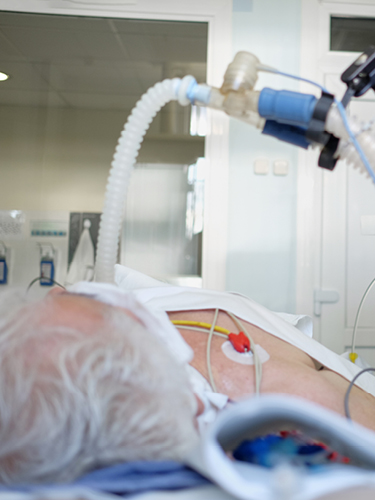Clinical Pharmacists Help Optimize Care of COVID-19 Patients
Submitted By:
TuTran T. Nguyen, Pharm.D.
Jun 08, 2020
To optimize the management of critically ill patients, a collaborative pilot was launched by critical care and general care clinical pharmacists at Massachusetts General Hospital. The efforts were led by ACCP member TuTran Nguyen, John Marshall (also an ACCP Member), Felicia Britt, Arzo Hamidi, and Kristy Phillips.
Critically ill adult COVID-19 patients are at high risk for post-ICU delirium, agitation, and withdrawal from sedatives and analgesics. The causes of delirium and agitation are multifaceted and include non-modifiable factors such as prolonged ventilator requirements, extended duration of sedation, decreased ability of clinical staff to closely observe patients and recognize key signs and symptoms due to limited supplies of personal protective equipment, and patients' isolation from their family members during hospitalization. Therefore, the ICU clinical pharmacists created an analgesia, sedation, and paralysis guidance document and weaning protocol for tapering sedatives and analgesics to reduce the likelihood of iatrogenic withdrawal. A similar decision tool was simultaneously created to help guide general care practitioners for post-ICU prevention and management of agitation and delirium. These efforts were carried out in collaboration with nursing leadership and clinicians from critical care medicine, hospital medicine, psychiatry, and addiction services. Upon discharge from the ICU to general care units, the critical care clinical pharmacists entered chart notes that detailed the patient’s course and provided recommendations for post-ICU medication tapers. General care clinical pharmacists then worked closely with the medical teams to ensure tolerability of the medication tapers, optimize sleep, minimize deliriogenic medications, and provide medication reconciliation upon discharge. The clinical pharmacy team has received positive feedback from physicians and nurses caring for their patients and plans to formally evaluate the effects of these new services.